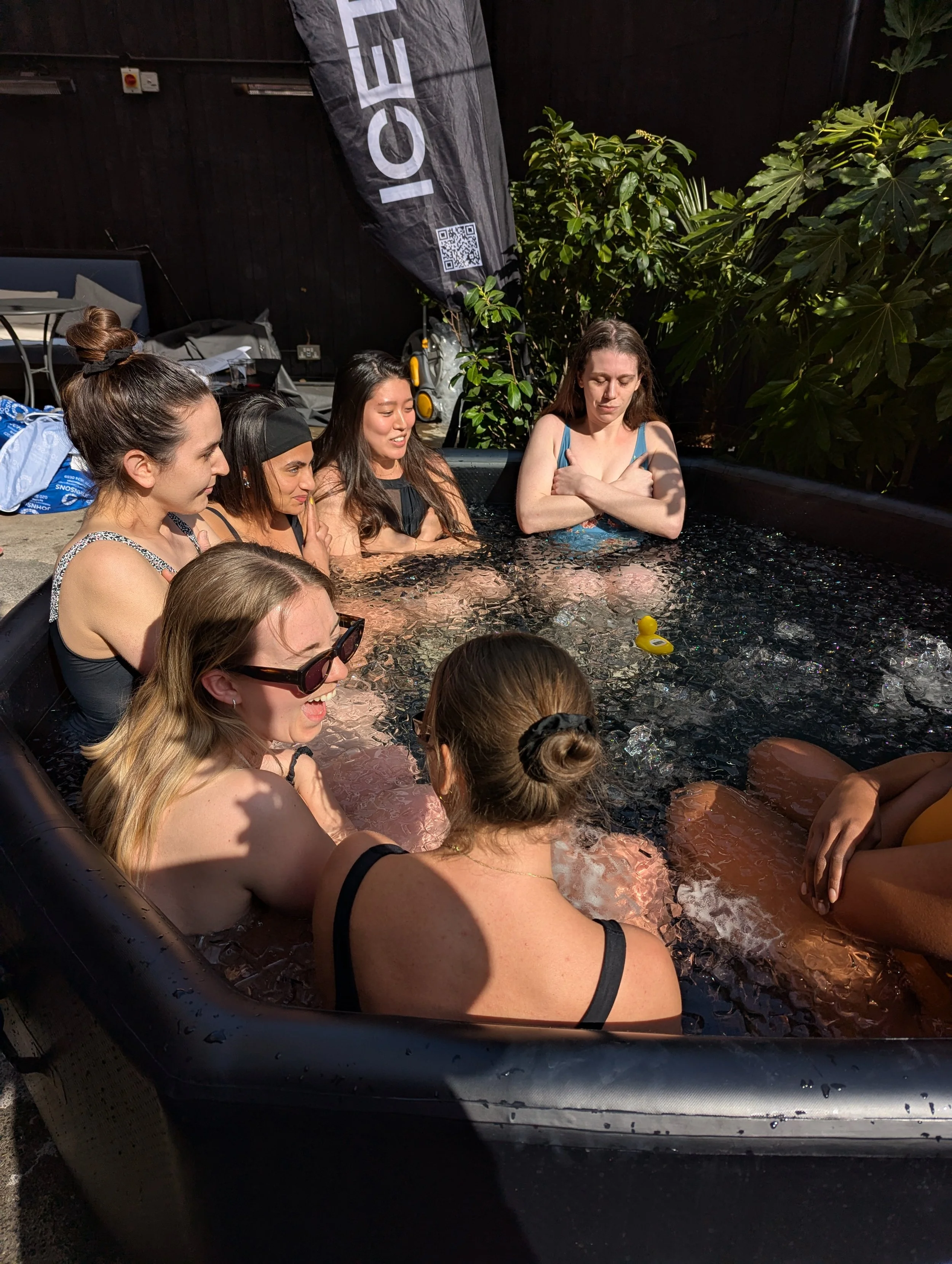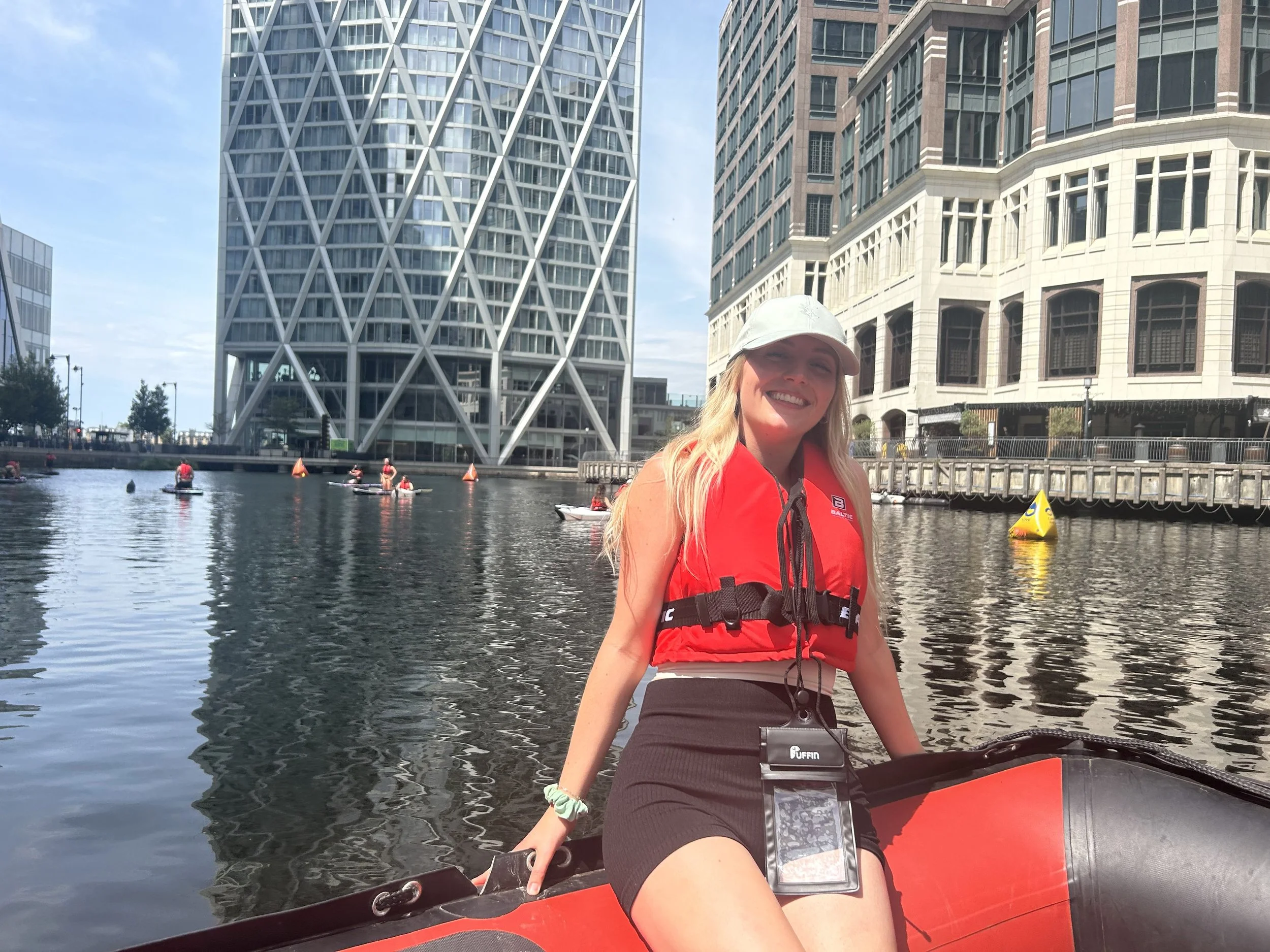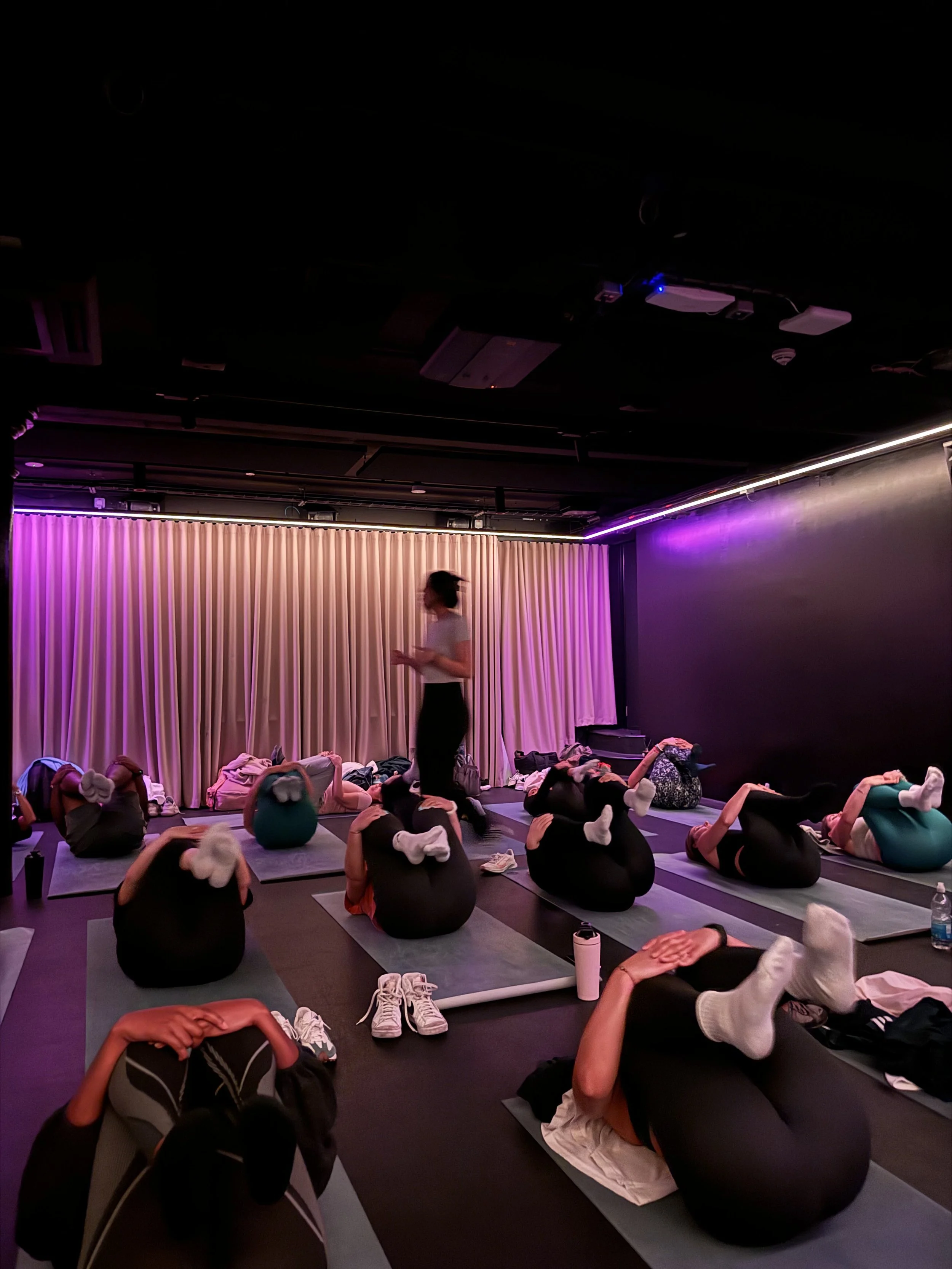Health Is Multi-Dimensional: Are You Meeting All 5 Pillars?
When you hear the word health, what springs to mind? Is it food? Exercise? Sleep? Happiness? Something else? The reality is, each person will likely have their own definition about what the word health means to them. But what if we told you there’s five key elements that come together to fundamentally optimise human beings for overall health?
We’ve collaborated with Social Wellness Club to explore this topic, ahead of our joint Adventure Club later this month.
Health Coach and Founder of Social Wellness, Thea Hurley-Bennett, shares here what health really means, the five key areas of health, and how to start living in a way that targets these key aspects of your overall wellbeing.
Health: So Much More Than Food and Fitness
Like many of us, Thea once believed health was all about eating well and training hard. “You could say I was part of the eye-rolling crowd,” she says. “I thought if I ate my chicken and broccoli and hit my workouts, I was healthy.
But then, I started to get a number of symptoms and no matter how well I ate or how hard I trained, I didn’t feel better. I was doing everything right on paper, or so I thought, so I couldn’t understand it. But I started to take a broader view of things, and look more holistically at my life – so looking at my stress and my relationships, amongst other things. Only when I understood these aspects of my health did things begin to change.
And that’s what ultimately led me to train as a health coach. The health system in the UK is wonderful, but it is built for urgent care and cure. There is so much we can do as individuals, with simple changes to our lifestyle, that can set us up for better health.
I heard this quote recently and it has stayed with me: ‘if you listen to your body when it whispers, you won’t have to hear it scream.’ Put simply, if we can get in tune with all the various aspects of our health now, we can do as much as possible to prevent certain things happening further down the line.”
The Five Dimensions of Health
You’ll be familiar with at least two of these, but how in tune with them are you? As for the remaining three, read on to find out why they’re so important.
1. Physical Health
“This is your body, so your movement, strength, nutrition and sleep. It’s the easiest to understand but also very easy to overdo. More training isn’t always better – physical recovery matters just as much for physical health.”
2. Mental Health
“This is centred on your mindset, focus, clarity, and how you handle life’s daily demands.”
3. Emotional Health
“This is how you relate to yourself and those around you, as well as how you generally feel and also how you process stress.
When we ran a relationships event with Social Wellness Club, many people were shocked to learn that healthy relationships are one of the strongest predictors of long-term health.”
4. Spiritual Health
“Don’t let the word spirit scare you off. This is about feeling connected to something bigger than your daily tasks, living by your values, and having a sense of purpose.
Many ignore this because it feels abstract, but a strong sense of purpose can be a powerful buffer against stress.”
5. Environmental Health
“This is about where you live, work, and spend time, and nature is a major player here. Cities often pull us away from the elements our bodies crave — things like daylight, fresh air, and open space. Getting out in nature can calm your nervous system, match your brain’s own frequencies, and quite literally help you breathe easier.”
Read on to find out more about all of these.
Can We Meet All Five of These Dimensions Living Full-Time In a City?
“Yes, but you have to be proactive about it. We’re not set up for success, because there’s a mismatch between modern living and our biology, how we should be living. Cities highlight this discrepancy even more. So we need to be proactive, and that can be as simple as taking time away from electronic devices, getting outside at lunchtime with no headphones in or distractions – for example, just taking a walk to a nearby river or park to disconnect. These small moments in the day are so powerful because we get so many health benefits when we’re outside – yes we get the physical benefits of walking and moving, but we also create space for the mind to have a break.”
What Does Nature Do For The Body?
“You see people start to breathe better, they smile more, and in general everyone slows down. In London you’re constantly racing the people next to you in the street, and cursing if they go slow. You don’t even realise you’re doing it until you’re somewhere that naturally dictates a slower pace. And when you’re in nature, there’s no racing – you’re there to just be. It brings us back to a moremore of an ancestral way of just meandering and wandering. There’s something about when you’re out in nature with people, and you take time to just simply sit and have lunch, or even just sit in the grass or on the sand – that feeling of taking your shoes off and grounding your feet, it really does recharge and reconnect you.”
Why Is Our Environment Not Often Discussed as Part of Mainstream Wellness?
“A lot of this comes down to education. If you think about this from a societal lens, most people work for an employer, and that employer naturally wants you to be the most productive you can be. Yet they force you to be inside most of the day, often scheduling back-to-back meetings, which completely crushes your productivity. There should be an element of ownership on employers to build in time to get you outside, so we need to educate companies on this. All they’re thinking about is output, which is understandable, but they can increase their employees’ output if they simply pull back the demands and enable them to have more time outdoors to boost productivity.
Something I find so interesting about being outside is the vibrational frequency aspect. One of SWC’s previous event speakers commented how the vibrational frequency of nature and the earth is 7.83 hertz, which mirrors the frequency of the brain’s alpha wave state, the state most associated with relaxation. So it makes complete sense why we feel so relaxed when we’re in nature. It allows us to be in a calm, meditative and focused state, so we could all do with being outside more.”
Which Parts of Our Health Are Most Neglected?
“People hear the word spiritual and have a reaction to it; they have their own preconceptions and biases as to what the word means. Some people think it’s all ‘woo woo’ and not grounded in reality. But what it comes down to is feeling a sense of purpose and being connected to something bigger than yourself, and living in line with your words and your actions. People tend not to lean into their spiritual health as much as they do their physical, mental or emotional health, because there can be a lot of pressure for people to find their purpose. The word ‘purpose’ can feel extremely intimidating, so therefore it can be easier to not focus on spiritual health at all.”
What Are Some Potential Warning Signs That Wellbeing Is Out of Balance?
“Your energy – both physical and motivational – is a good first sign. It will always fluctuate – for example, there are times when you’ll be working harder and have less energy, so your body will want to say no to taking on anything more. And likewise there’ll be times when you’ve got tonnes more energy in the bank so can say yes to more. But there are a few things to look out for if they’re becoming more frequent or consistent:
If you’re feeling super tired all the time
If you’re waking up tired even if you’ve had 7 or 8 hours sleep
If you’re normally fairly social but don’t have the energy, or don’t want, to see friends
If you feel drained when you’ve been around close friends
All of these indicate that your nervous system is overwhelmed, and your body is telling you to pull back on things simply because you don’t have the energy to give to them.
If this is the case, there are some things you can do to try and regain some energetic balance:
Look at your lifestyle and work out what energetic recovery works for you. For example, if your job requires you to be on your feet all day – perhaps you’re an athlete, a builder, or a waitress – then recovery might look like reading or journalling. Something that takes you out of the go-go-go mode that your job requires. Versus, if you have more of an office-based job where you are sat most of the day, which is potentially mentally taxing, then going to the gym might be your energetic recovery. Just because someone else recharges by going for a walk, doesn’t mean you have to do the same.
Reflect on your emotional and mental health. And don’t be afraid to be bored when doing this! Give yourself a bit of space. I recommend to my clients – and they can find it difficult the first time – to lie on their bed and set a timer for 10 minutes, and do absolutely nothing. Just stare at the ceiling. How do you find this? If you can easily do this, it’s a good sign that you’re in a fairly balanced place. If you find this uncomfortable or confronting, then it can be a sign that spending more time reflecting (perhaps simply journaling, talking to a friend or therapist) would be beneficial to regain some balance.”
What’s One Thing You Wish More People Knew About Health That’s Not Widely Discussed?
“That they don’t need to over-engineer and over-optimise their health. It’s easy to fall into this trap and get caught up in thinking you need to buy all these ‘health’ plans from people promoting things on social media. But we are all so unique – we have unique needs because we are all shaped by our own unique genetics. Plus, our own lifestyle is shaped by so many factors, so we need to cut through the noise and ignore everyone else, and tune into our own body for answers. Look inwards, not outwards. Yes, take inspiration and learn from other people – but try it yourself, listen to your body, and ask yourself how are you really feeling? If you feel better, great. But if you don’t, that’s ok – not everything works for everyone.”
Inspired to take a more holistic approach to your health?
Adventure Club brings together nature, movement, and people who care about more than just steps and stats. Come join us and Social Wellness Club on July 26th as we enjoy one of the most iconic coastal walks in England.
RELATED BLOGS
Want more articles like this?
Sign up and be the first to receive news and updates!













